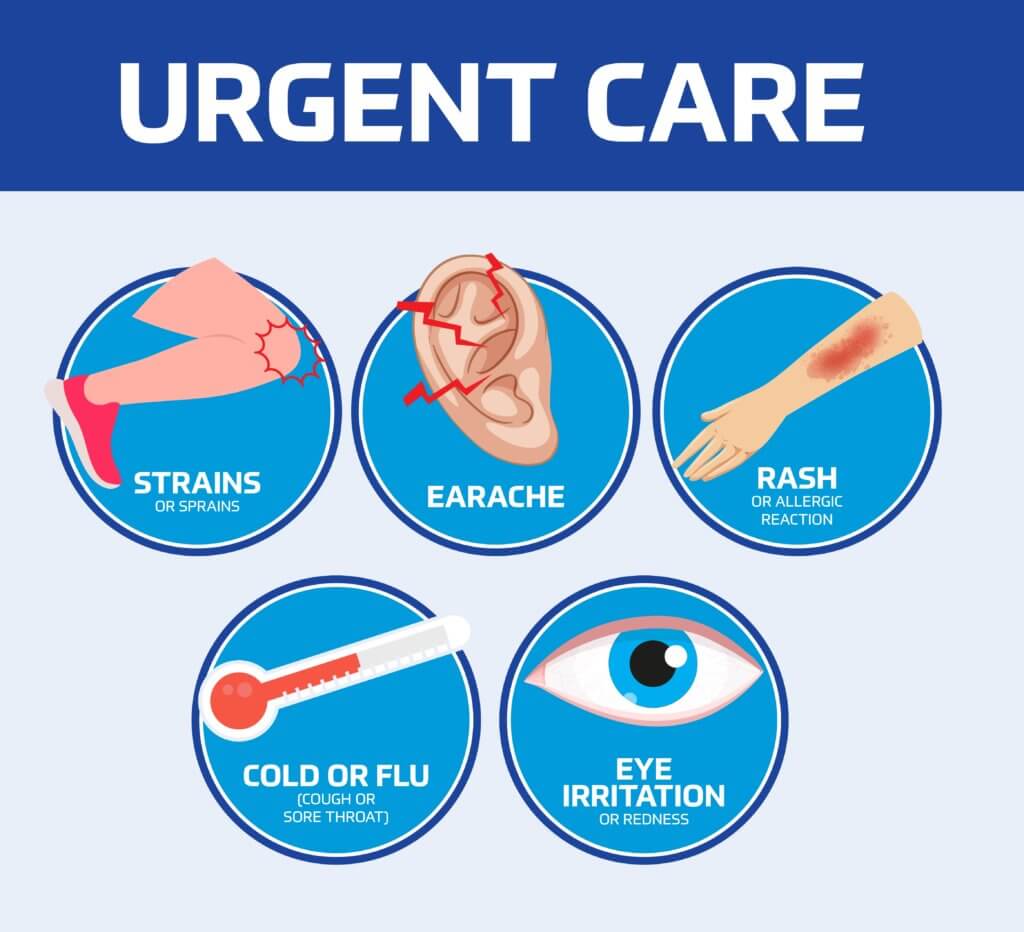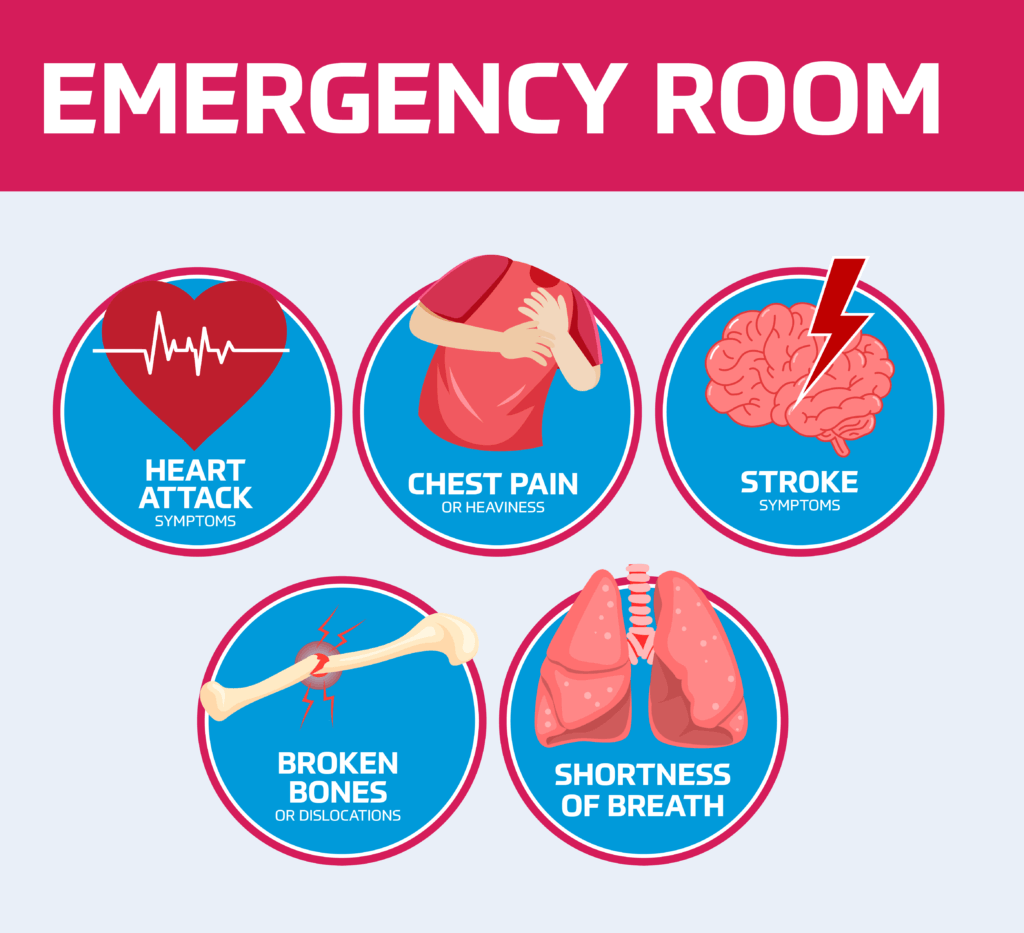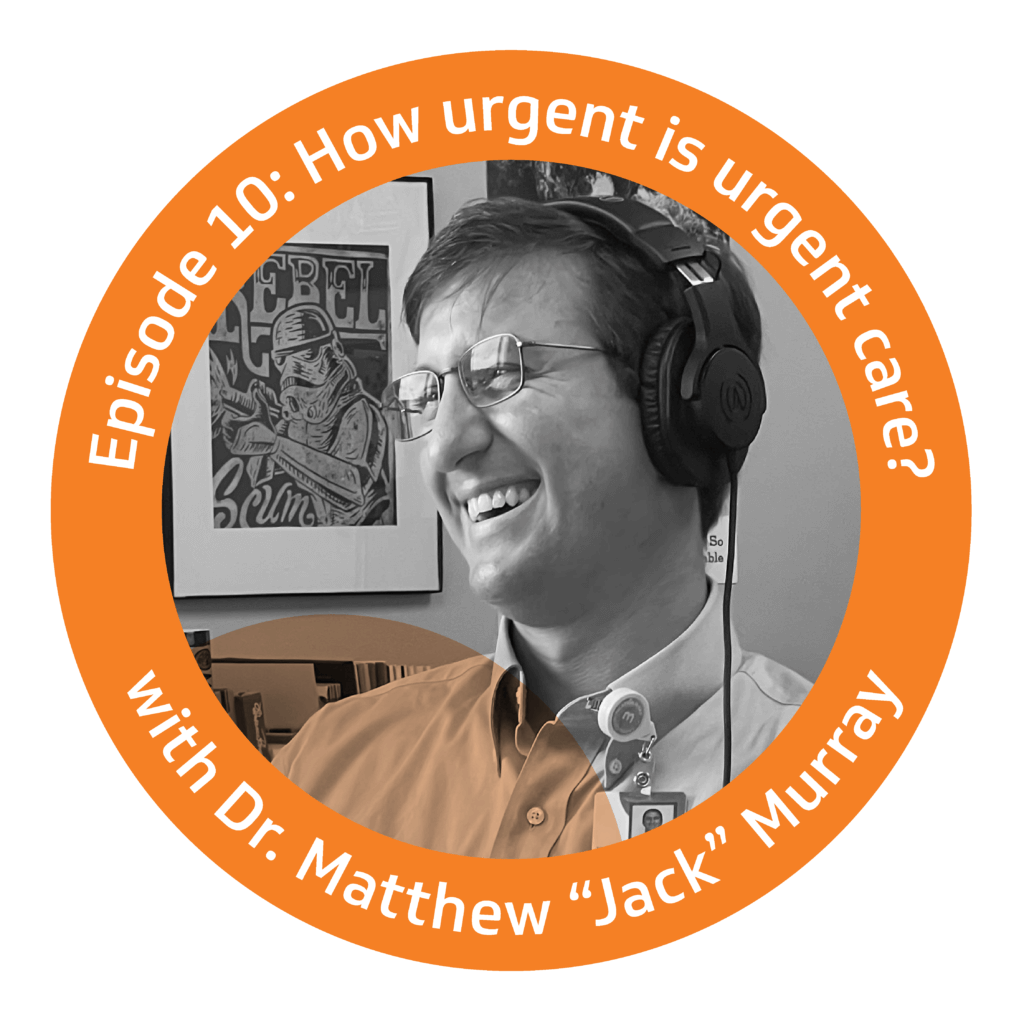Urgent Care vs. Emergency Room: Which should you choose?
In the hustle and bustle of everyday life, usually when you least expect it and at the most inconvenient time, you are faced with a health crisis that requires you to react and seek medical treatment. The decision most people are faced with is, “Does this warrant an urgent care visit or a visit to my local emergency room?” Any health scare creates a sense of urgency to get the situation resolved as fast as possible. When this type of situation arises, especially on the weekends, we sometimes feel our options are limited and left with nowhere to go but to the emergency room. That urgency can sometimes lead to long wait times in your local emergency room, frustration, and a very hefty medical bill after all is said and done.
To avoid all the unwanted frustration in advance, it’s essential to be educated on the different types of conditions treated at urgent care clinics versus a hospital’s emergency room before seeking any type of medical treatment. Let’s go over some of those differences.
Urgent Care Clinic Visit
Urgent care clinics are not meant to be a replacement for the immediately needed life-saving care you can get in an emergency room. Urgent care clinics are equipped to handle pressing, but not life-threatening, health issues. We recommend that you call your primary care provider to see if you can get a same-day appointment before heading to an urgent care clinic since your own provider manages your health regularly and will be more familiar with your medical history. Your Primary Care Provider can also give you an idea of what level of care you might need based on the issue at hand.
You can think of an urgent care clinic as a middle ground. It falls somewhere between your primary care provider and a visit to the emergency room. A good example of a situation that would justify an urgent care visit would be waking up with flu or cold-like symptoms, running a fever of 102, with no underlying health conditions. Urgent care clinics can administer tests for viruses and providers can develop an appropriate treatment plan for you.
Urgent care visits are typically less expensive, have lower co-pays, and are more convenient, as they generally have shorter wait times than your local emergency department. Singing River Medical Clinics offer walk-in urgent care services, same-day appointments, and care when you need it, with some clinics open 7 days a week.
Examples of conditions treated in urgent care clinics and via walk-in same-day appointments at Singing River Medical Clinics:
- Muscle pain
- Moderate flu-like symptoms
- Cuts and minor burns
- Eye irritation
- Earache
- Rash or allergic reaction
- Sprains or joint pain
- Urinary tract infections
- Shortness of breath
- Vomiting or persistent diarrhea

Emergency Room Visit
If you are faced with a medical emergency, your first step is always to call 911.
Medical emergencies that warrant a visit to a hospital’s emergency room are true life-threatening issues. If you feel you need immediate surgery or advanced treatment please go to your local emergency department for care. Examples of conditions treated in the emergency room:

- Chest pain, pressure, or difficulty breathing
- Compound fracture
- Head injuries
- Pneumonia
- Seizures
- Severe abdominal pain
- Shortness of breath
- Sudden, severe headache, paralysis or weakness
- Uncontrolled bleeding
- Serious burns
- Suspected heart attack or stroke
- Motor vehicle crashes
- Gunshot wounds
- Stabbings
- Overdoses
Emergency departments employ a process called “triage” to ensure the most critical patients are seen most quickly. Unlike most industries, emergency healthcare is not given on a first-come, first-served basis. Emergency Departments have an obligation to care for the sickest patients first.
Singing River Emergency Departments are fully equipped with the appropriate staff, imaging, and laboratory resources to handle emergency situations and our triage nurses have been trained to use each patient’s symptoms and vital signs to determine how severe an illness or injury is and how quickly each of the patients awaiting care require medical attention.
Emergency rooms may be open 24 hours each day, but if you are not facing a life-threatening issue, your wait time may be much longer than you would experience at an urgent care clinic, due to the triage process. Additionally, co-pays and expenses tend to be much higher at an emergency room than through an urgent care clinic, so yet again, knowing when an emergency room visit is your best choice is key to getting the best and fastest care needed for your issue.
It can still be somewhat unclear and in the moment of a health crisis, everything may feel like an emergency. That’s why establishing a relationship with a primary care provider you can reach out to for issues as they pop up is so critical to your health and well-being.
Tune in to our Healthcare is Selfcare podcast episode: How Urgent is Urgent Care? as Internal Medical Physician, Dr. Matthew “Jack” Murray dives deeper into the differences.
Do you need to go to an urgent care? Or a medical clinic? When is something an emergency room issue? How do you know? Internal Medicine Physician Dr. Matthew “Jack” Murray discusses the differences, why we have these different options, and more on this episode of Healthcare is Selfcare: The Podcast.
Prefer to read? Check out the episode transcript here.
